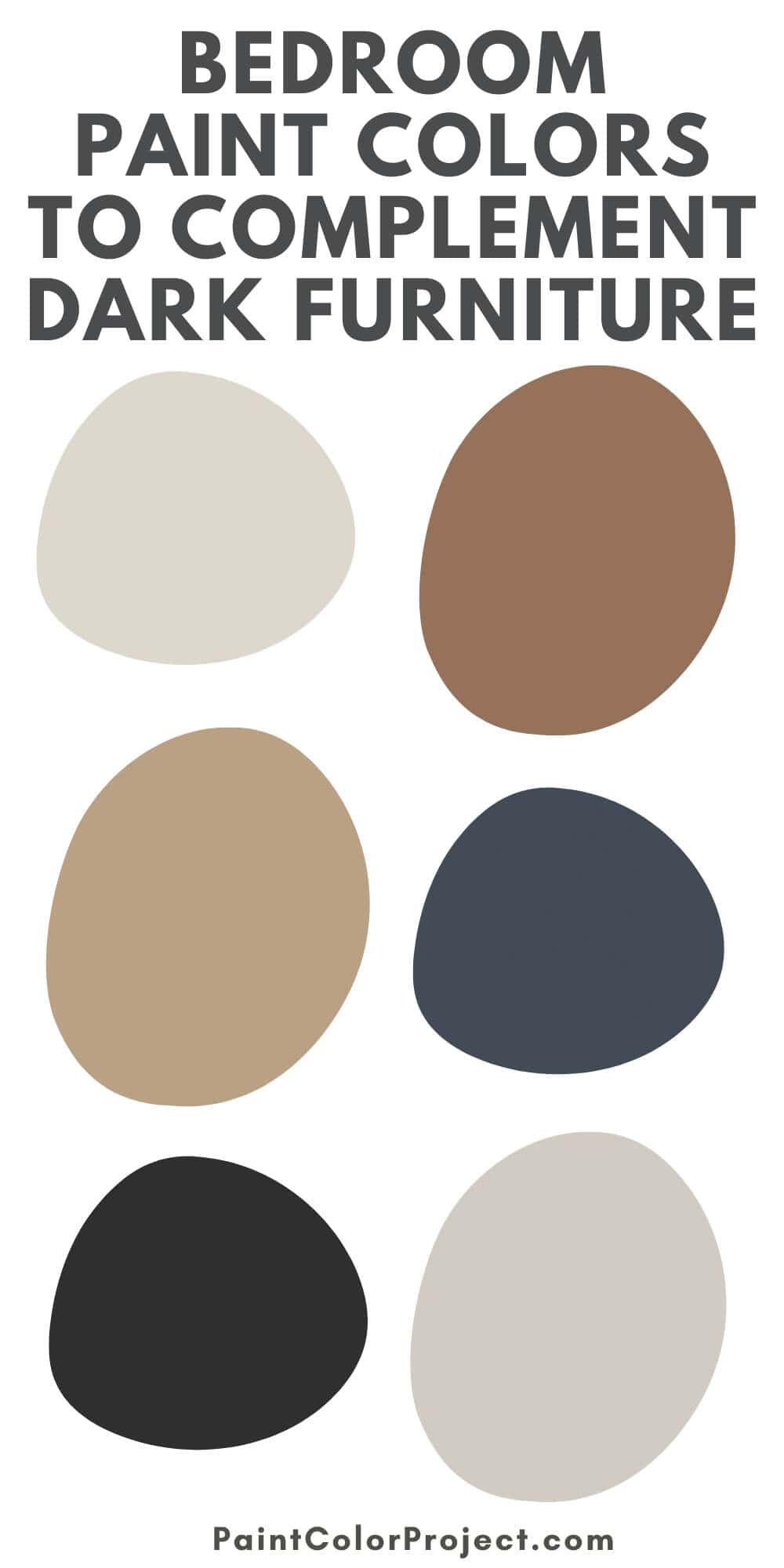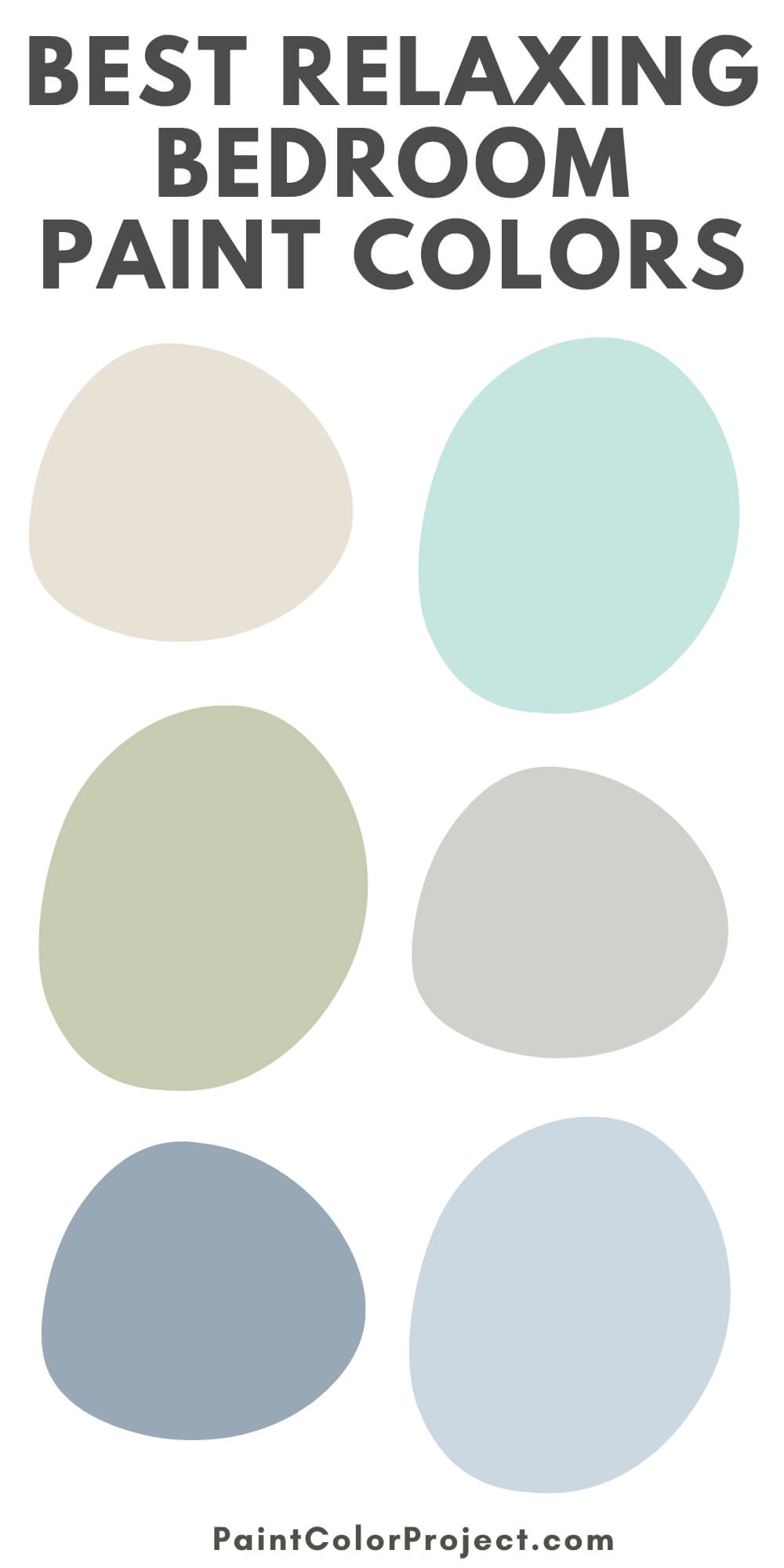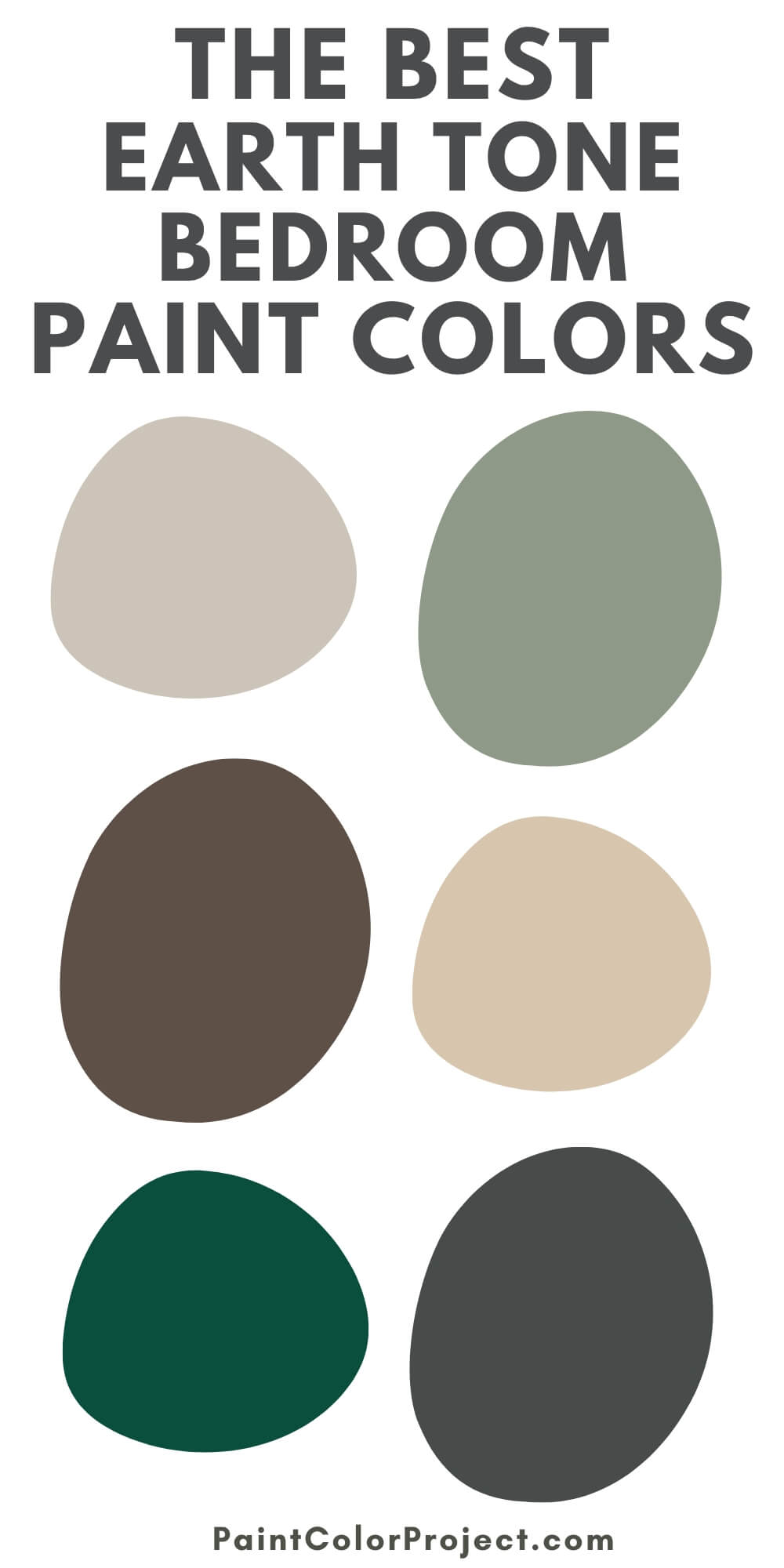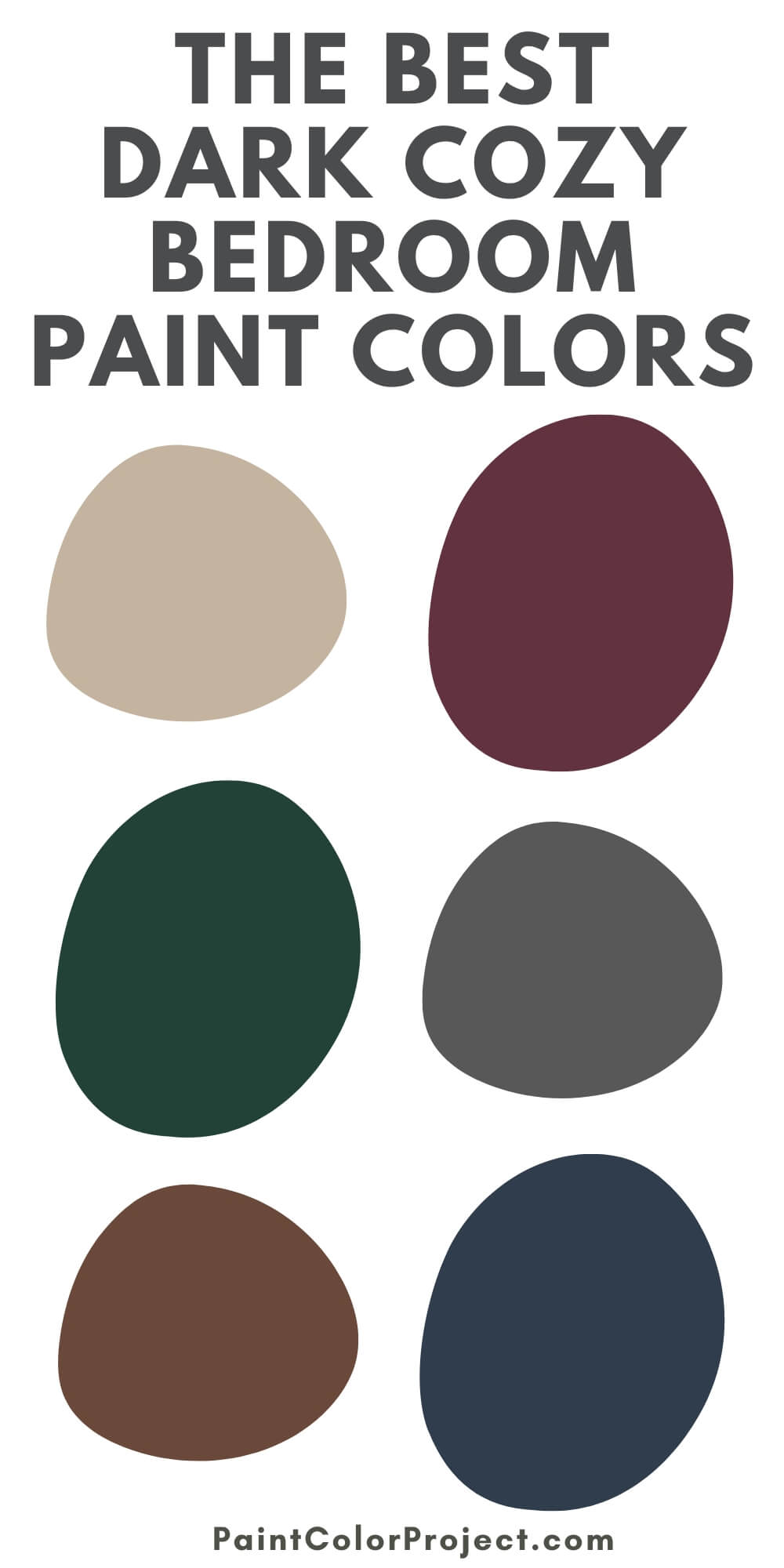Looking for the perfect warm master bedroom paint colors? Check out our selection of rich, inviting hues for a truly cozy bedroom experience.
Cool paint colors have their place in the home, but I’m a firm believer that bedrooms—specifically master bedrooms—deserve a warm and inviting color palette.
Warm paint colors in a bedroom create a cocoon-like atmosphere that turns it into a haven of comfort, relaxation, and intimacy.
In this article, I’ve gathered some of the best warm master bedroom paint colors you can find today.
Whether you’re drawn to timeless neutrals, bold jewel tones, or subdued pastels, this list has the right color for you.
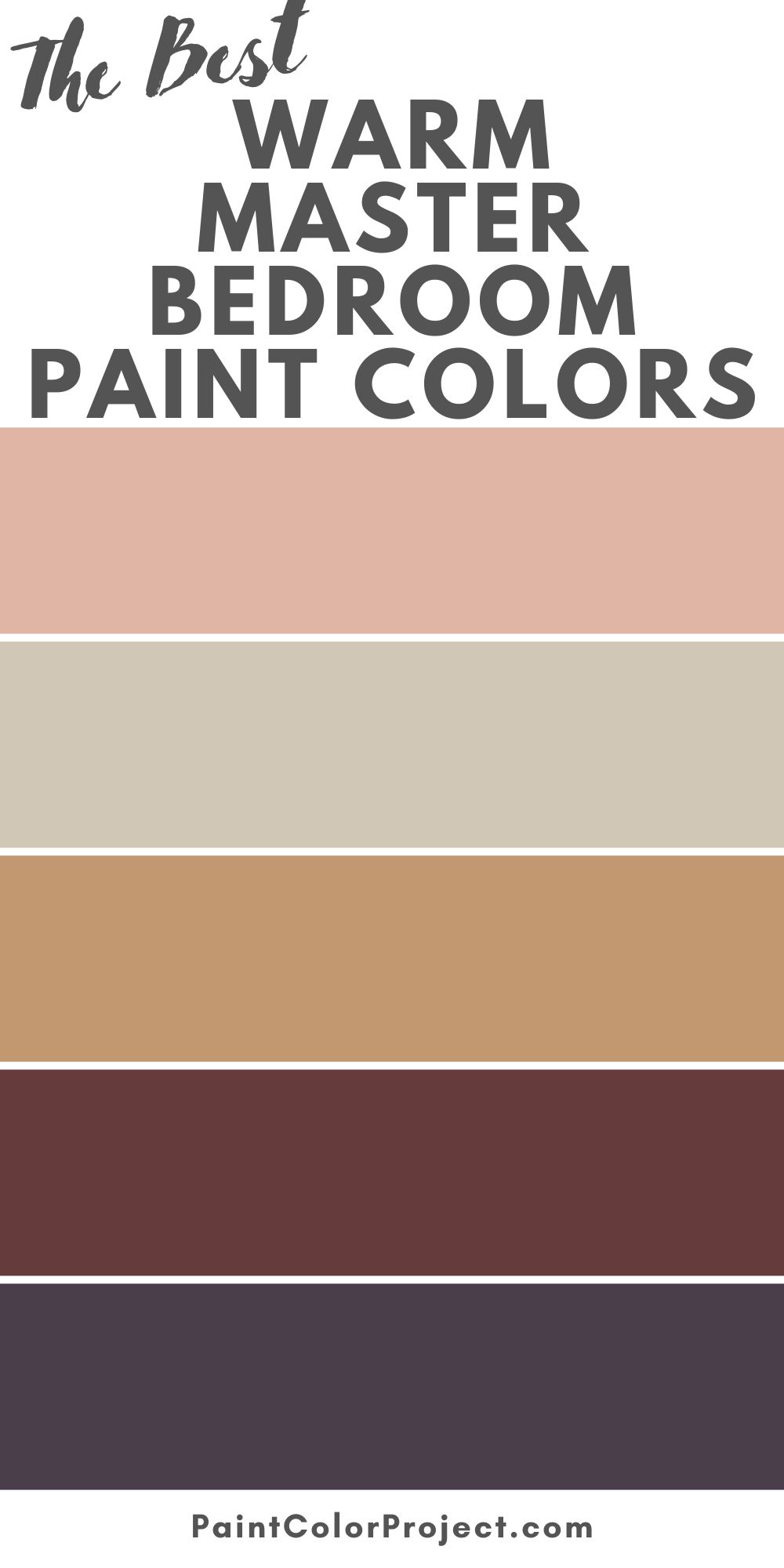
Warm Master Bedroom Paint Colors
Here are the best paint colors to give your bedroom a warm, cozy aesthetic.
Creamy White
Creamy white is a soft, off-white that evokes a sense of warmth and richness.
It can have undertones of various colors, but the most common include yellow, pink, and beige.
Creamy whites with yellow undertones foster a welcoming and inviting atmosphere, while pink undertones give it a soft and delicate appearance.
Creamy whites with beige undertones, on the other hand, animate an earthy tone.
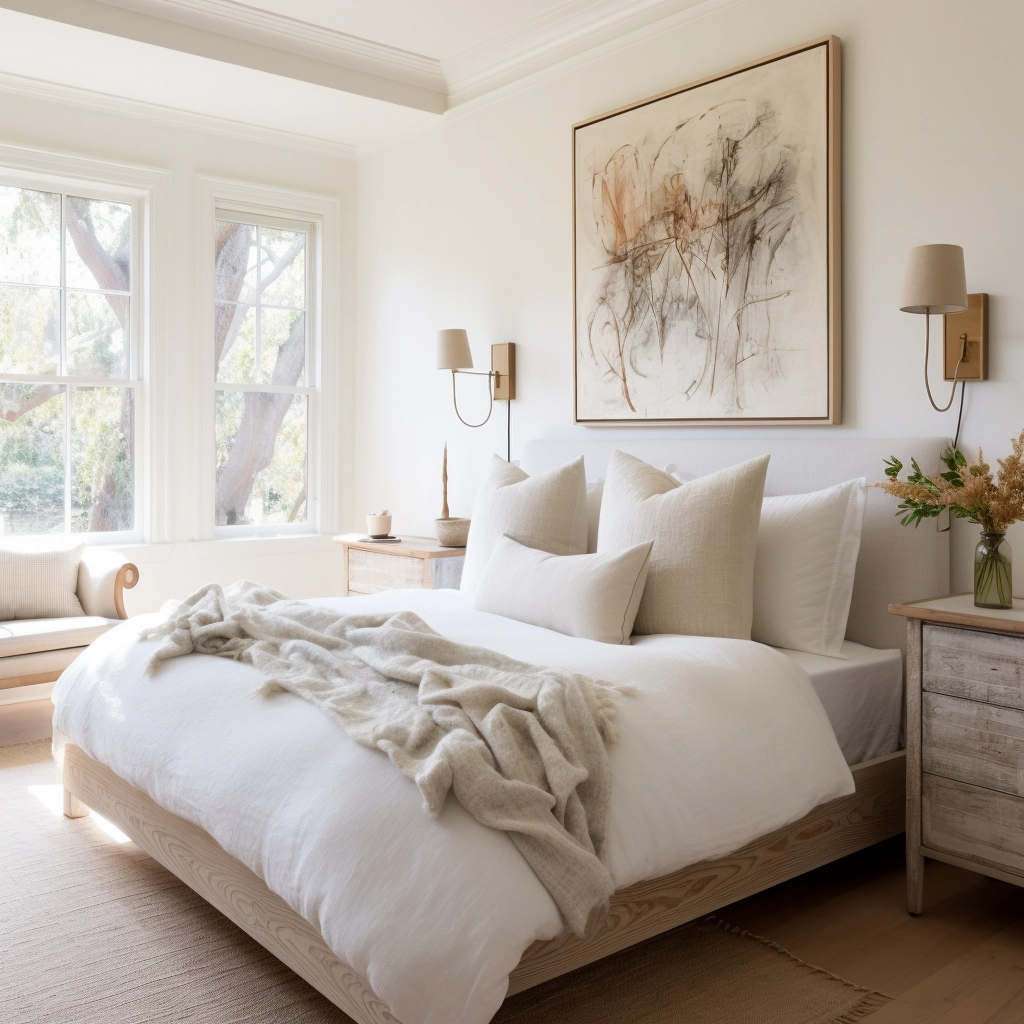
- White Dove, Benjamin Moore: A light and airy off-white with greige (gray and beige) undertones. The tinge of gray helps balance out the warmth of beige, preventing it from appearing too stark or overly warm.
- Swiss Coffee, Benjamin Moore: A sophisticated off-white with just the right amount of warmth. It has subtle green undertones that lean a bit toward yellow.
- Shoji White, Sherwin Williams: A soft and delicate off-white with gray and beige undertones that work seamlessly with light and dark furnishings.
Terracotta
If you want to bring a touch of the outdoors inside, terracotta is a color worth considering.
Terracotta is a deep burnt orange with a touch of brown, reminiscent of the earthenware of the same name.
It pairs beautifully with natural materials, such as wood and stone, as well as shades of green.
Terracotta comes in varying shades, from earthy red-browns and muted oranges to burgundy.
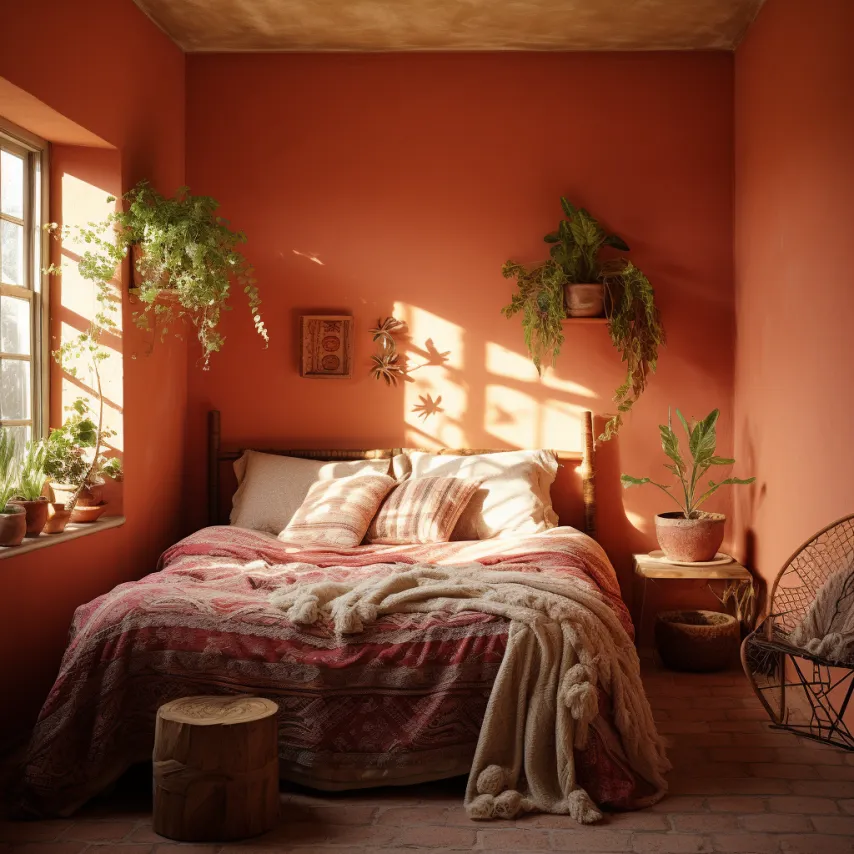
Deeper shades resemble the natural color of fired clay, bringing a grounded and rustic feel to a master bedroom.
Meanwhile, lighter and muted terracotta shades offer a softer and subtler appearance.
They add a touch of warmth without being too bold, creating a comfortable and inviting atmosphere.
- Glazed Pot, Behr: An earthy terracotta that combines warm clay brown and deep amber tones. It falls on the darker end of the color spectrum with an LRV (Light Reflectance Value) of 22, so it’s best used as an accent wall or coordinating color to make a bold statement in a room.
- Smokey Salmon, Sherwin Williams: A light terracotta with pinkish-red undertones, making it appear soft and warm. It pairs well with neutral tones like cream, beige, and muted greens.
- Clementine Rose, Benjamin Moore: A graceful terracotta orange that combines the warmth and earthiness of terracotta with the lively tones of orange, adding a refreshing touch to a space.
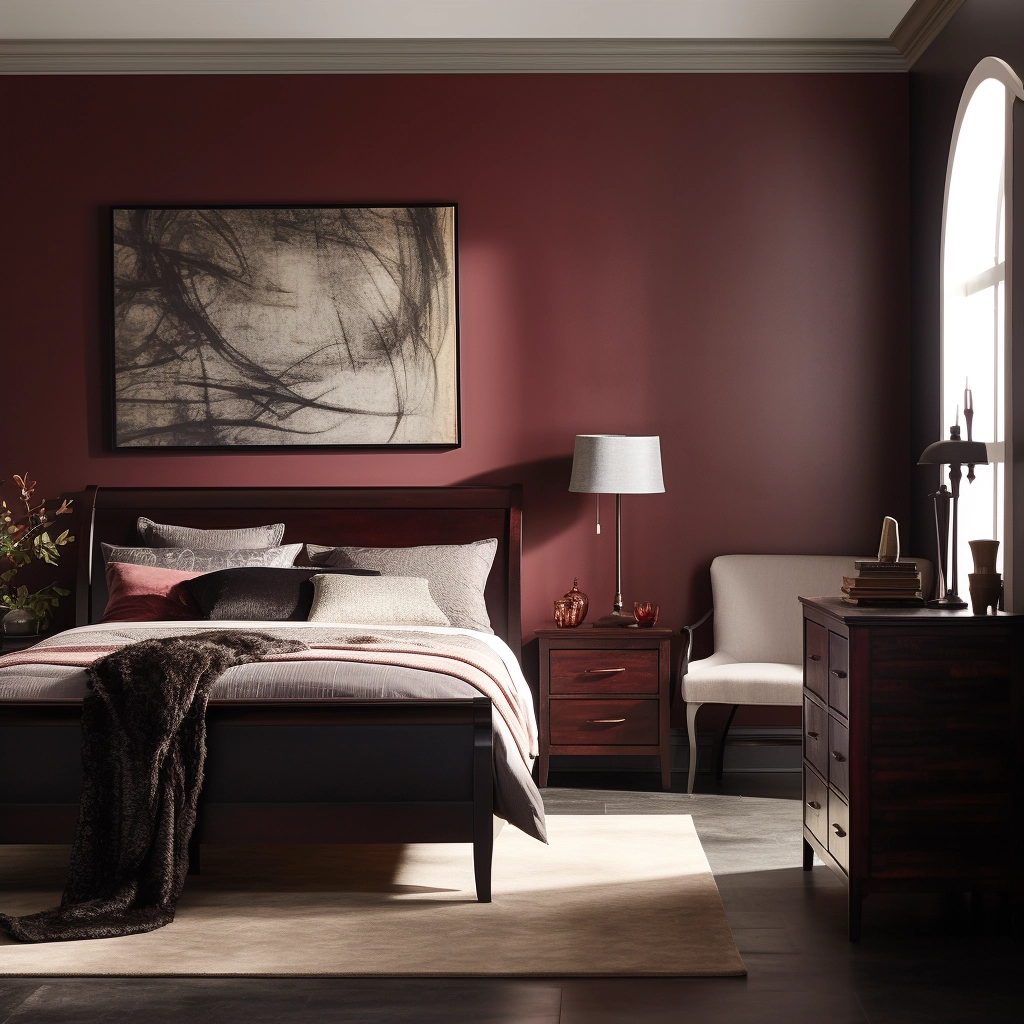
Soft Beige
You can never go wrong with classic beige walls.
This neutral hue produces a calm and soothing ambiance, making it a fitting choice for a master bedroom.
It acts as a blank canvas, blending seamlessly into any color scheme.
Moreover, it has a timeless quality that never goes out of style.
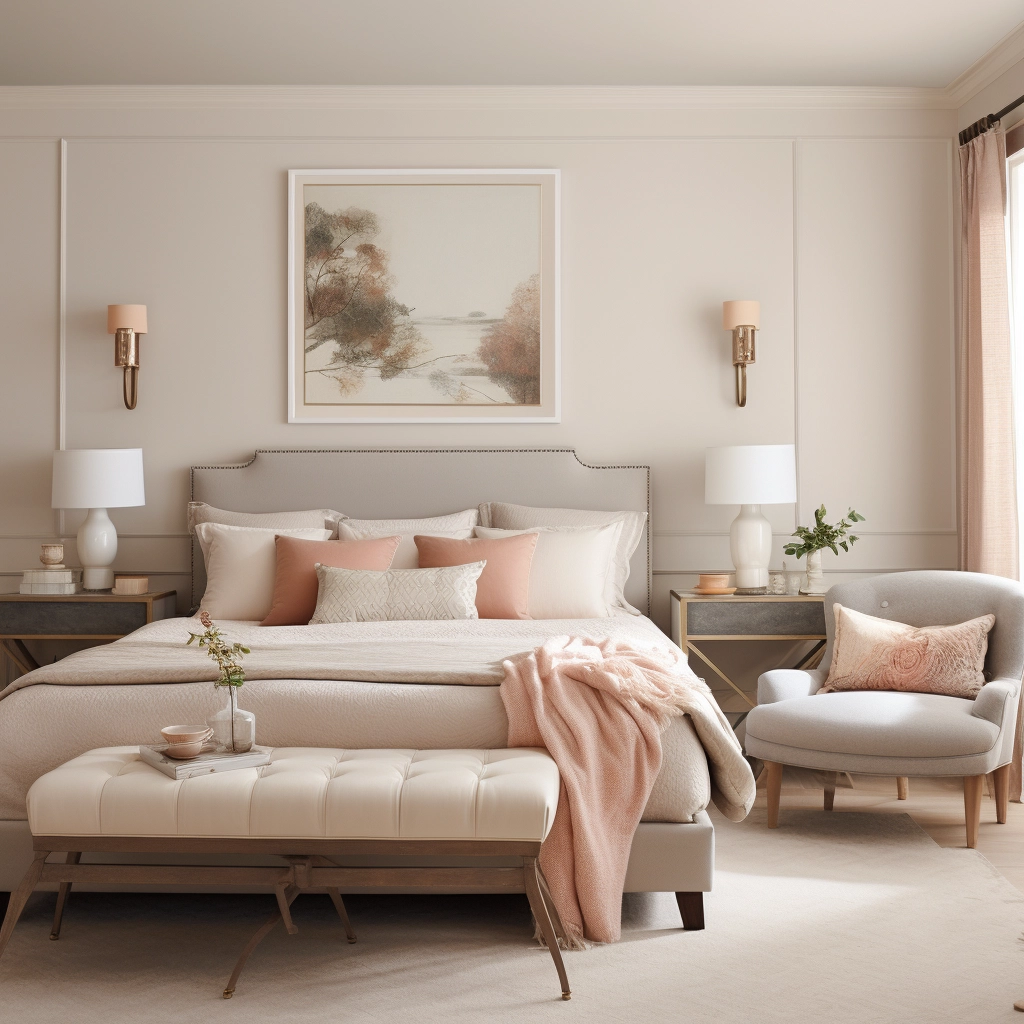
This means it can easily adapt to changing design trends and serve as a long-lasting foundation for your bedroom decor.
What I love most about beige—other than its versatility, of course—is that it provides warmth without being too overpowering. It’s a subtle color that adds coziness to a room without dominating the visual space.
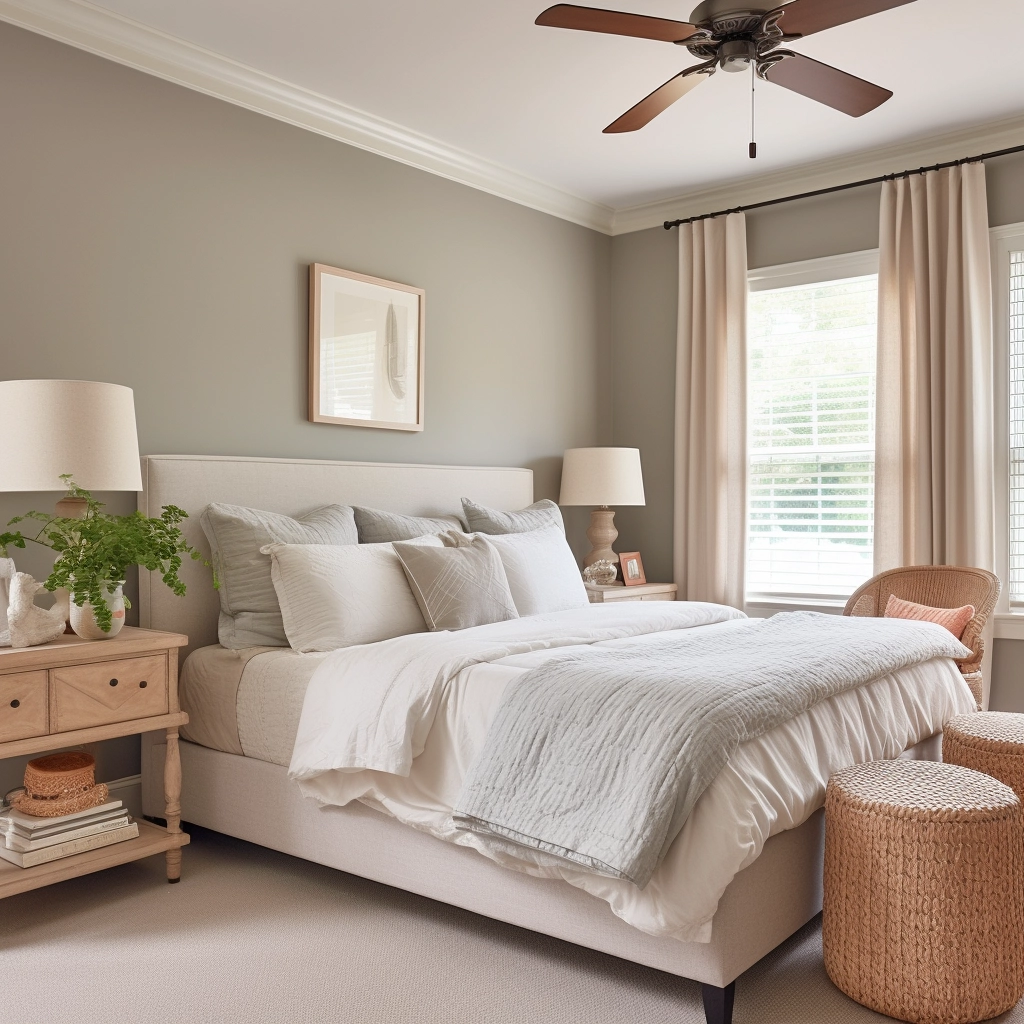
- Accessible Beige, Sherwin Williams: A popular beige with gray undertones, giving your space a warm, snug feel. It pairs well with muted accent colors.
- Balanced Beige, Sherwin Williams: A warm greige that looks stunning with greens, blues, dark brown, cinnamon, and warm whites.
- Kilim Beige, Sherwin Williams: A forgiving beige with muted peach undertones. Complement it with rich earthy tones, warm woods, and creamy whites to create a cozy and inviting atmosphere.
Red
Red is a naturally warm color. When used in the master bedroom, it creates a space that feels romantic and intimate.
Darker reds, such as deep crimson or burgundy, add a sense of lux and sophistication to a room, while lighter reds like rose and coral bring a more playful and vibrant feel.
Red can be a difficult color to work with because it can dominate a space if not balanced properly.
It’s a strong and attention-grabbing color, so using it extensively on large surfaces can make a room feel smaller and more enclosed.
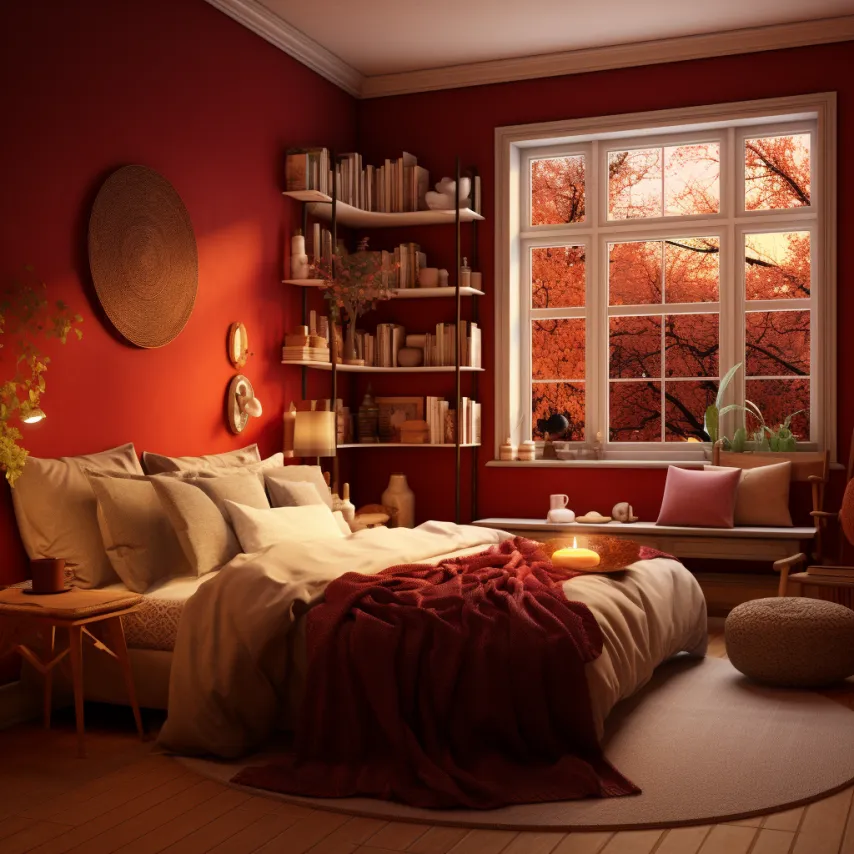
If your bedroom is on the smaller side, you’ll want to avoid using red—particularly darker red—as the main color of your bedroom.
Instead, use it as an accent color or a feature wall.
If you do decide to use it as the main color, balance its intensity with lighter tones to create a layered and well-designed space.
- Cascabel Chile, Benjamin Moore: A passionate wine-red with brown undertones, transforming a space into a rich and inviting haven. The subtle brown undertones add depth and earthiness to the red, creating a well-rounded and grounded appearance.
- Pressed Flower, Sherwin Williams: A muted pastel-pink red that delivers a quiet, subdued energy. It pairs nicely with other soft pastels or muted shades and neutral tones such as grays, whites, and beiges.
- Beetroot, Sherwin Williams: Inspired by the deep, rich hues of the vegetable of the same name, Beetroot brings a sense of earthy luxury and warmth to a space. It’s simultaneously bold and muted, so it doesn’t overwhelm a bedroom with its richness.
Caramel
Caramel is a more sophisticated alternative to tan. Though several shades darker, it’s just as versatile.
You can use it to add depth and drama to your bedroom space or create a warm and inviting atmosphere.
It all depends on the shade of caramel you choose and how it’s implemented into the bedroom.
Caramel responds well to natural light, so if you’re using it as a feature wall, position it in an area with ample sunlight to showcase its richness.
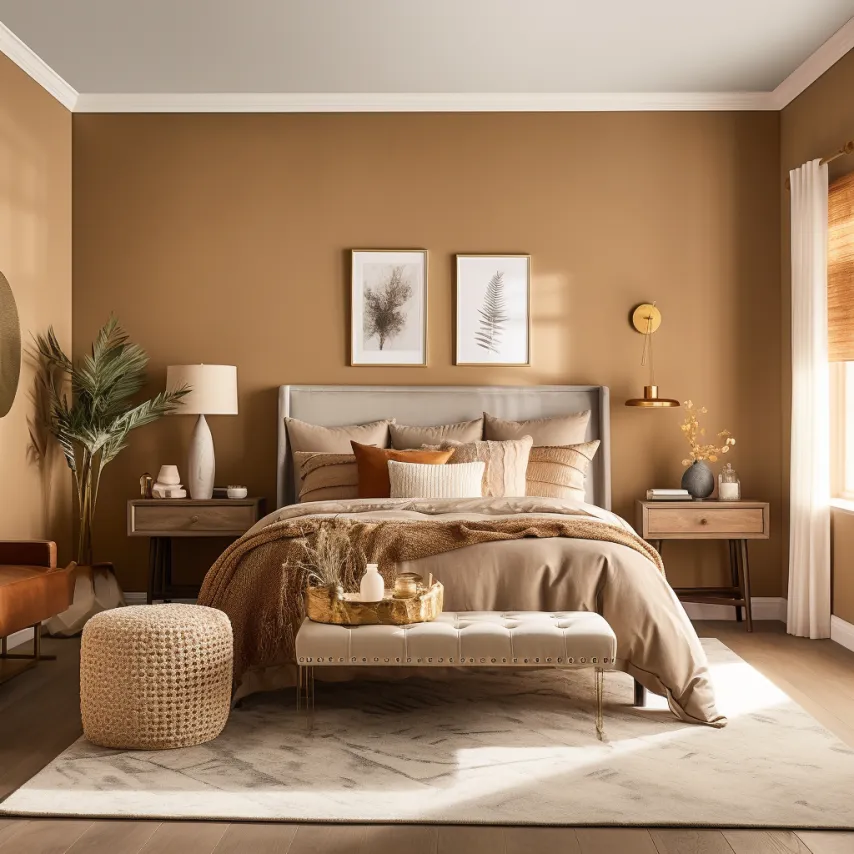
- Caramel Sauce, Behr: Reminiscent of the warm and indulgent tone of toffee. Pair it with soft whites, creams, or muted blues and greens to complement and balance its warmth.
- Caramelized, Sherwin Williams: A soft caramel with yellow undertones, making it a compelling choice for creating an upscale and inviting ambiance in a bedroom.
- Maple Syrup, Benjamin Moore: A luxurious caramel shade with rich amber undertones. It looks stunning when paired with natural materials and textures, so don’t be afraid to incorporate wood finishes, natural fabrics, and stone surfaces into your design.
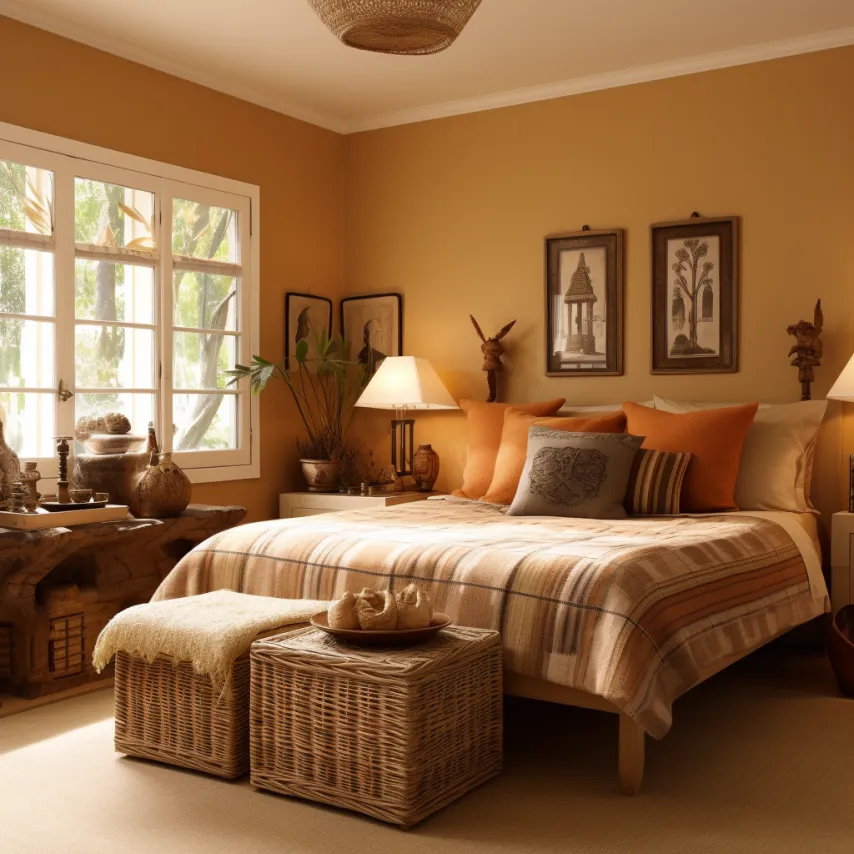
Dark Purple
Depending on the undertones, purple can either appear warm or cool.
Lighter shades, like lilac, tend to have cooler undertones, while darker shades, like plum or eggplant, lean towards warmer tones.
So if you’re looking to infuse warmth into your master bedroom, go for purples that fall in the deeper end of the spectrum.
Purple has long since been associated with luxury and royalty. It bathes a room in an elegant, almost regal feel, creating a sense of opulence and sophistication.
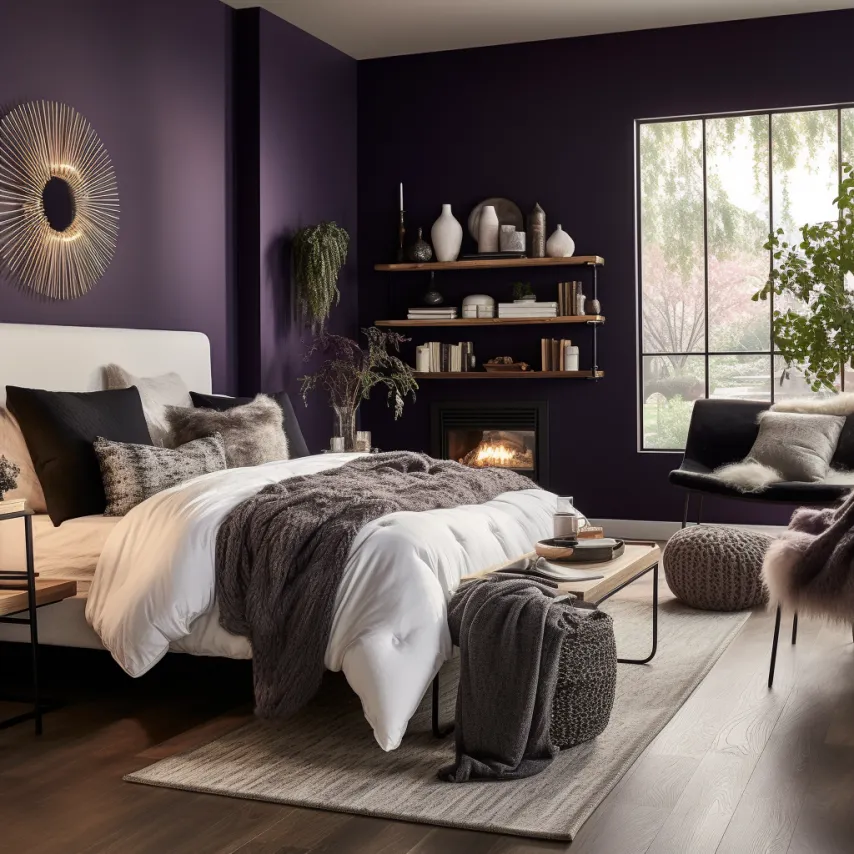
The only problem with purple is that, because it’s so bold and rich, it can easily make a space feel dark and suffocating.
Therefore, it’s best used in moderation. Use it as an accent or feature wall, and pair it with complementary colors like gold, silver, or cream.
- Black Raspberry, Benjamin Moore: A bold dark purple with brown undertones, infusing a space with an earthy richness.
- Kasbah, Benjamin Moore: If you’re looking for a lighter shade of purple, Kasbah is a good choice. It has gray and brown undertones, and while still entirely saturated, it has a more subdued and neutralized feel compared to bolder purples.
- Dark Walnut, Benjamin Moore: A passionate purple with a feminine aura. It has red and brown undertones, reminiscent of the rich hues of magenta.
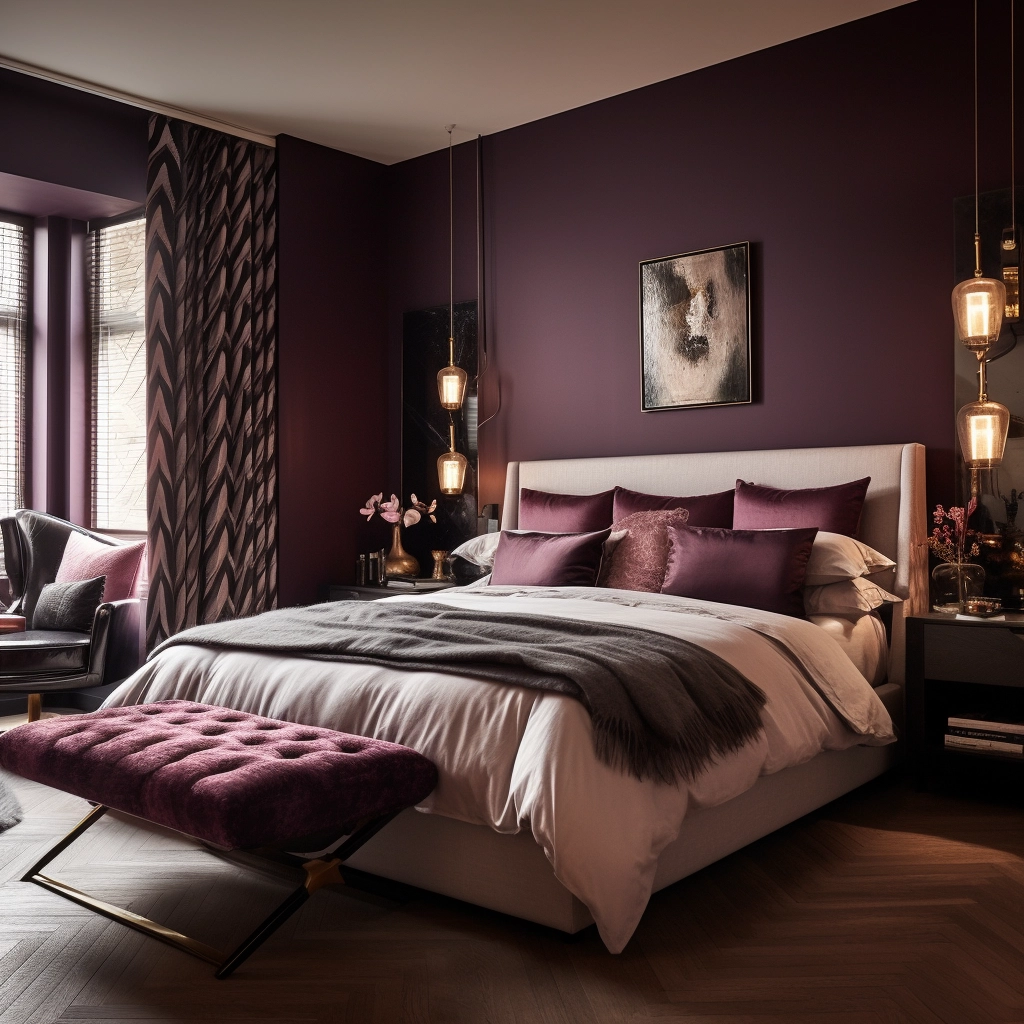
Brown
Despite its rich color profile, brown is a versatile, neutral hue that contributes to a warm and soothing ambiance.
Medium shades of brown, like chocolate and mocha, add a palpable depth and richness to a bedroom, providing a balance between coziness and sophistication.
Darker tones, like walnut and espresso, add a sense of intimacy and elegance.
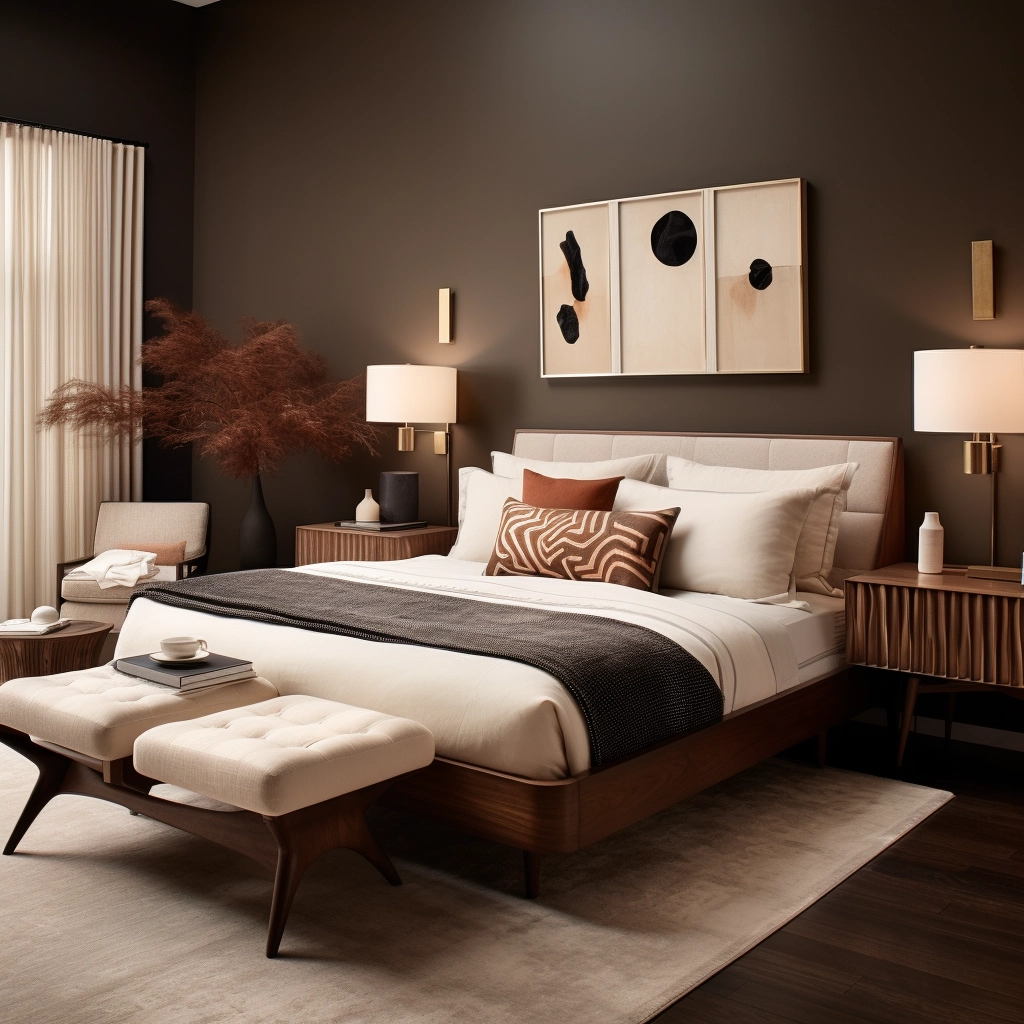
Regardless of the shade, brown is firmly rooted in nature, meaning that it works wonders with muted greens, soft blues, turquoise, and other similar colors found in the great outdoors.
- Midsummer Night, Benjamin Moore: A moody, minky brown tone that oozes warmth and sophistication.
- Whipped Mocha, Benjamin Moore: A sandy brown with rosy undertones, making it suitable for spaces where a cozy and welcoming ambiance is desired.
- Sable, Sherwin Williams: A rich, vintage brown with orange undertones.
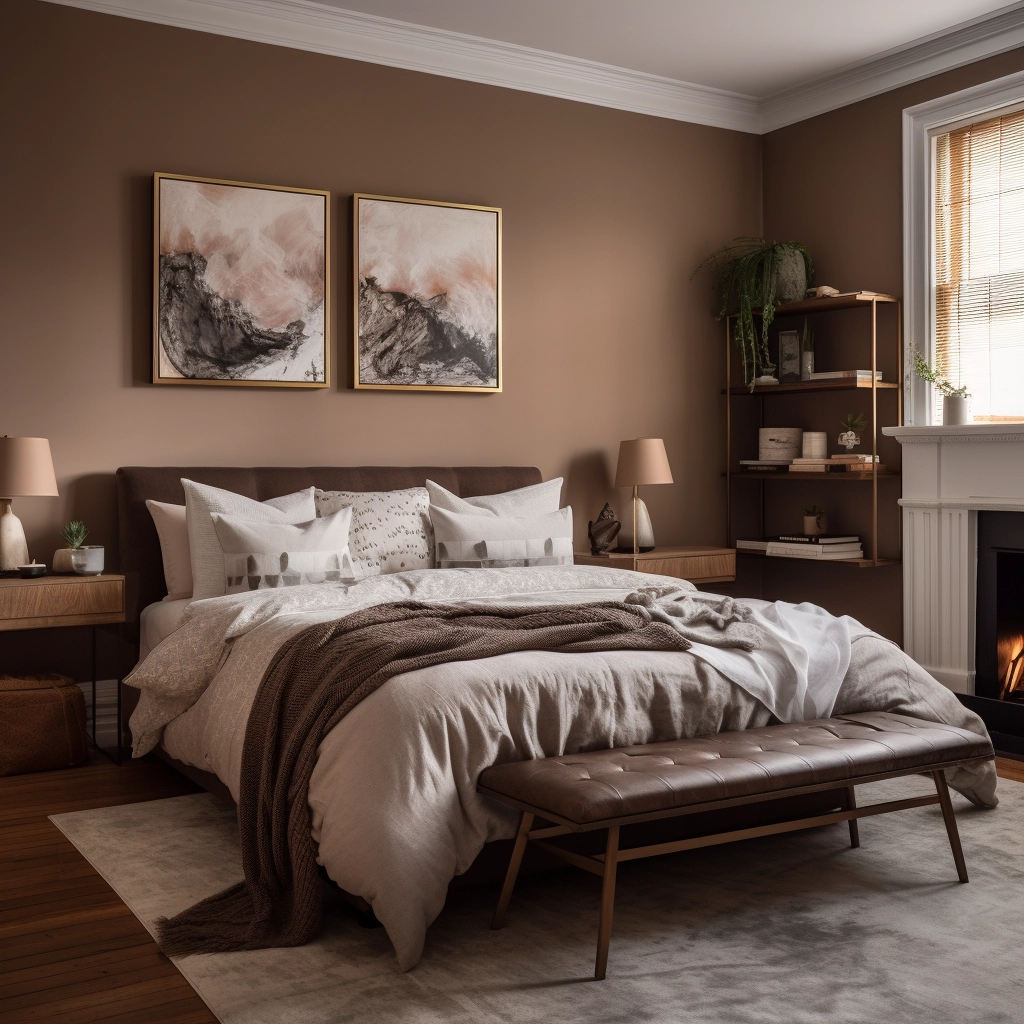
Before you go...
There are hundreds of warm paint colors available for master bedrooms, each offering a unique blend of undertones to create a specific mood or atmosphere.
The colors I’ve listed above are some of the best options to consider, and I hope they gave you that much-needed inspiration for your next project.
If you need further help in choosing the right paint color, be sure to download my free paint planning worksheet. The worksheet offers expert advice and tips on when to match and when to complement, among others.
Still unsure which paint color is right for your space?
Choosing paint doesn’t have to be stressful! My free Paint Color Planning Quick Start Guide walks you through the exact steps to confidently choose the perfect color — without the overwhelm, second-guessing, or endless swatch testing.
👉 Click here to download the free guide!

My Paint Color Formula course walks you through the painless process of expertly testing paint swatches to ensure you have the perfect color for your home.
The best way to sample paint? Samplize!
Get peel-and-stick removable and reusable paint samples here!
Thanks for reading!
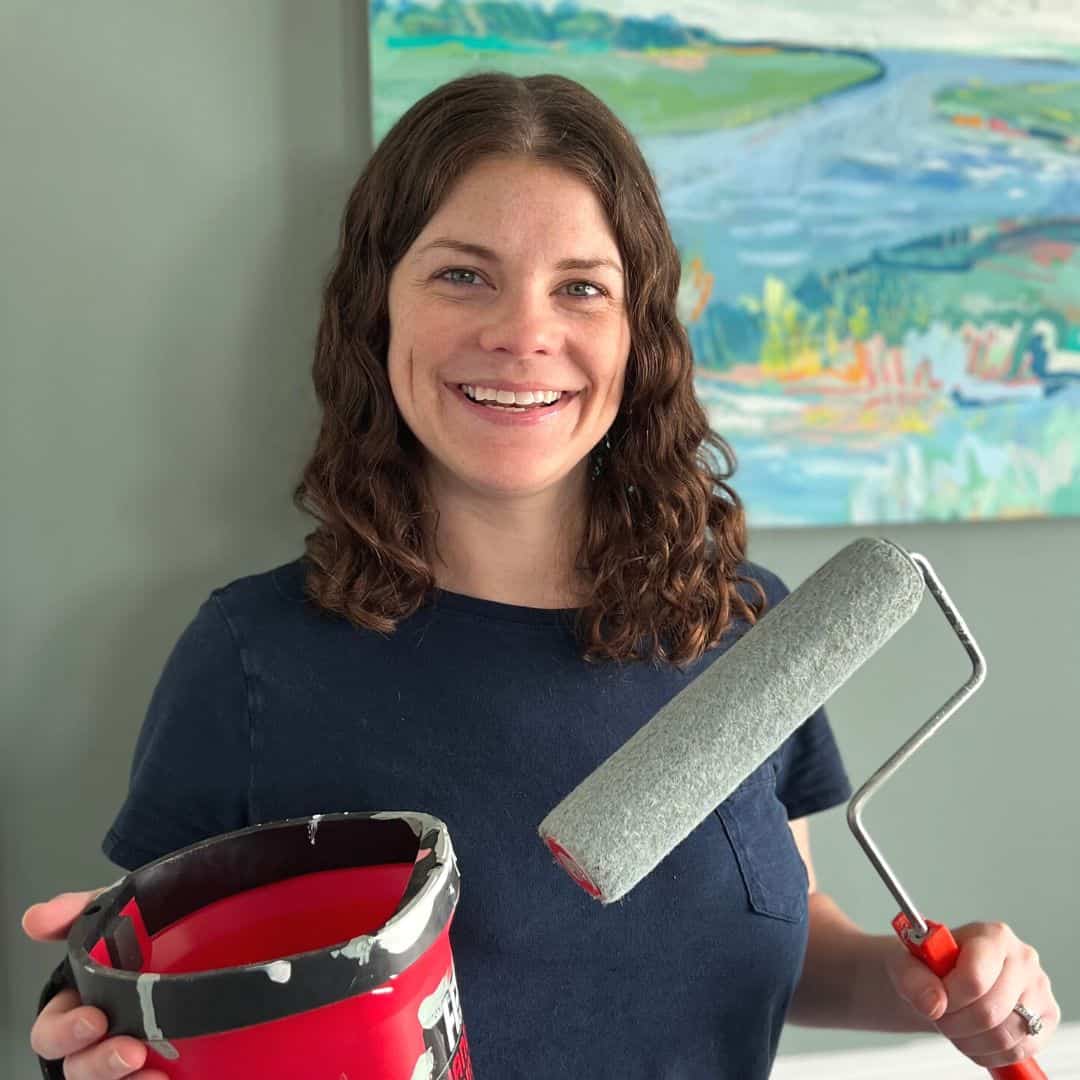
Morgan is passionate about home decor and paint colors. She has been sharing DIY home decor tips since 2012 at CharlestonCrafted.com. From there, she learned to love paint colors, and the Paint Color Project was born in 2022!


